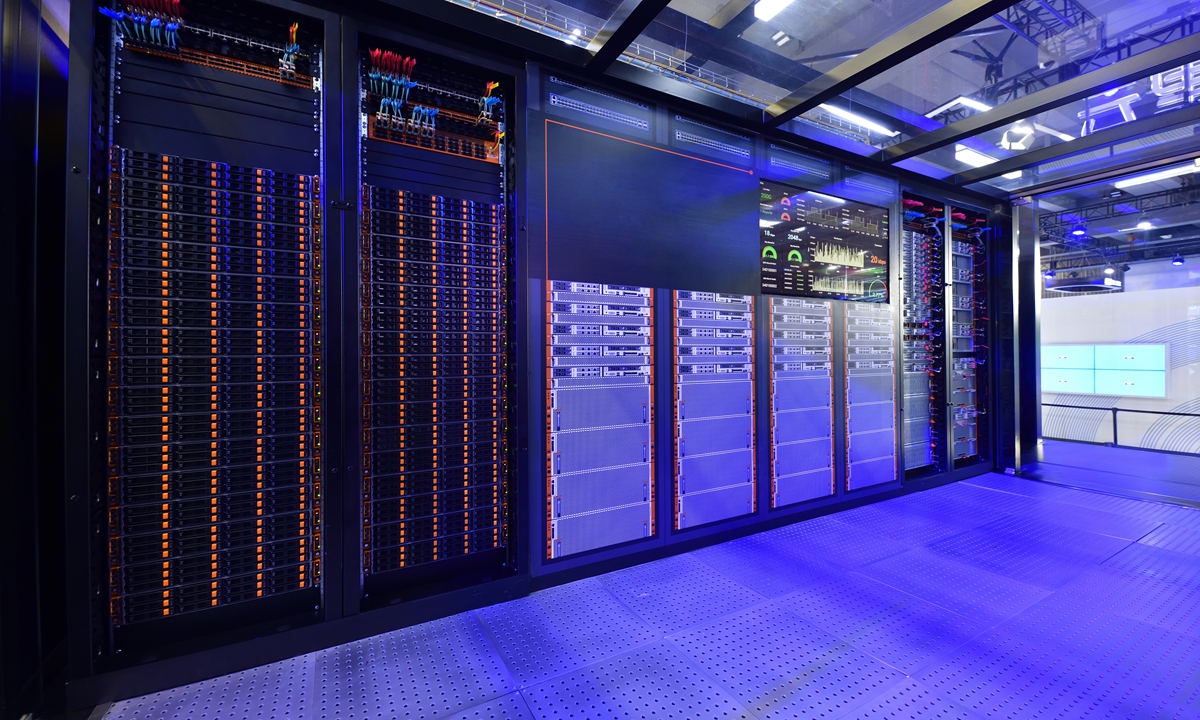Chinese quantum computer is 180 million times faster on AI-related tasks, says team led by ‘father of quantum’ Pan Jianwei
- The team says the device could be applied to data mining, biological information, network analysis and chemical modelling research
- Jiuzhang computer took less than a second for a task that the fastest classical supercomputer in the world would take nearly five years to solve
Published: 4:00pm, 8 Jun, 2023 Updated: 4:00pm, 8 Jun, 2023
In research using China’s Jiuzhang computer, scientists implemented and accelerated two algorithms – random search and simulated annealing – that are commonly used in the field of AI. Photo: University of Science and Technology of China
Scientists in China say they have reached another milestone in
, declaring their device
can perform tasks commonly used in
180 million times faster than the world’s most powerful supercomputer.
The problems solved by their quantum computer could be applied to data mining, biological information, network analysis and chemical modelling research, the researchers said.
“Our work is a step toward testing real-world problems using the existing noisy intermediate-scale quantum computers,” wrote the team headed by
, a physicist at the University of Science and Technology of Chinawho has been dubbed the country’s “father of quantum”.
Their article was published in the peer-reviewed journal Physical Review Letters last month.
In the experiment, the team used Jiuzhang to solve a problem that is challenging for classical computers. It used more than 200,000 samples to solve the problem.
The researchers, for the first time, used the quantum computer to implement and accelerate two algorithms – random search and simulated annealing – that are commonly used in the field of AI.
The fastest classical supercomputer in the world would take 700 seconds for each sample, meaning it would take nearly five years to process the same number of samples.
It took Jiuzhang less than a second.
In a synopsis article published by Physics, a magazine from the American Physical Society that reports on papers from the Physical Review journals, the editor wrote: “the result extends the list of tasks for which today’s noisy quantum computers offer an advantage over classical computers”.
“Previous claims of quantum advantage were challenged by suggestions that the quantum computer was not competing against the best-possible classical algorithm for the task,” the article said. “Whether the team’s quantum processor will still yield an advantage over classical algorithms optimised for solving graph problems is an open question.”
In traditional computing, a bit represents either zero or one as its basic unit of information. A qubit goes a step further. It can represent zero – one or both at the same time – one of the simplest expressions of the peculiarity of quantum mechanics.
Since the basic information of a quantum computer can represent all possibilities simultaneously, they are theoretically much faster and more powerful than the regular computers we use in our daily lives.
But the subatomic particles at the heart of the technology are fragile, short-lived and prone to error if exposed to even a slight disturbance from the surroundings. Most quantum computers operate in extremely cold and isolated environments to avoid disruption.
Jiuzhang, named after a 2,000-year-old Chinese maths text, uses light as the physical medium for calculation. Unlike other quantum computers, it does not need to work sealed in extremely low temperatures and can operate with stability for longer.


